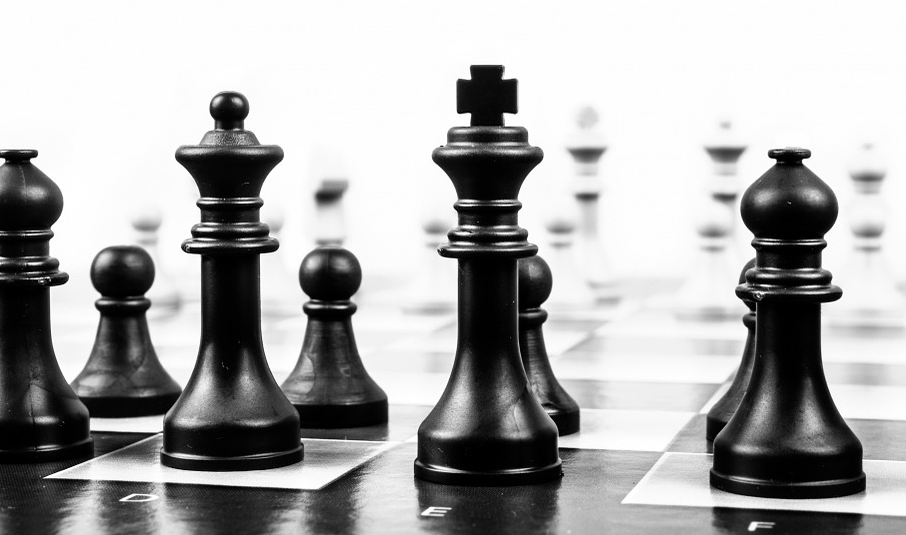
Advertisement
The Dow was more or less flat yesterday…
So, let’s return to the discussion you can’t have with your congressman, your mailman, or your barmaid.
It’s the important one.
It concerns what the Fed is really up to…
(Article by Bill Bonner)
Dread and Denial
We have been connecting dots… bringing new readers into the conversation… and organizing our own thoughts.
Already, you have met the zombies and the cronies… and you know that the government you learn about in school is not really the government you actually have.
Instead, we are ruled by a group of insiders we call the “Deep State” who pay little attention to the Constitution or the “will of the people.”
The term Deep State is not original to us. It was first coined to describe anti-democratic elements within the military, the intelligence services, the judiciary, and the mafia that controlled the real levers of power in Kemalist Turkey.
But it is being used more and more elsewhere, as people come to realize what is really going on in their own countries. (Today, we offer a neologism that is more descriptive.)
Your first reaction to the Deep State is likely to be denial or dread.
“It sounds impossible,” you might say. “How come I haven’t heard of this?”
Or: “How can we put a stop to this conspiracy?”
Relax…
There’s nothing underhanded about it; most of it takes place in plain sight.
The reason you haven’t heard about the Deep State is another important dot we need to connect. To wit, there are facts. And there are myths, delusions, guesses, and opinions.

[Editor’s Note: You can see Bill’s new warning about the Deep State here.]
Gaming the System
True facts are those that would still be true no matter what you think.
You send a pale boy out to the beach; he’ll get a sunburn. Water boils at 212 degrees Fahrenheit at sea level, even if we are in a hurry for our morning eggs.
But apart from these “true facts,” everything else is subject to myth and imagination.
The myth of our constitutional republic, for instance, is so attractive that most people refuse to look beyond it. Not only that, but most of the people who really matter to politics – the trendsetters, the rich, the opinion mongers, and the hacks and hustlers who make the system work – are paid NOT to look behind the screen.
But the real world is not like the movies. And Washington is not what most people imagine. It is more like what you would expect than what you would hope for. We know there are always people who figure out how to game “the system.”
Even in the most absolute monarchy, the king is powerless without a legion of insiders, courtiers, counsellors, ambassadors, hangers on, chiselers, and other assorted cronies. These people collude to use the police power of government to their own advantage.
In pre-revolution France, for instance, privileged groups used their influence – and often brute force – to get assets that would provide them with income, or “rents.”
They were called “rentiers.” And they lived off the productive economy like fat ticks on a dog’s back.
In today’s France, there are plenty of rentiers, too… but they no longer wear powdered wigs.
The New York Times passed on a report yesterday that French president Francois Hollande’s personal hairdresser has been paid more than $10,000 a month for the last four years – roughly the same as the salary of a minister in his government. (See Featured Reads below.)
Parasitic Elite
Everyone wants to get something for nothing. Everyone wants to be a rentier. And every society has them.
But a rentier is a parasite. And the more of them you have, the weaker the economy becomes… until it eventually succumbs to revolution, depression, war, or hyperinflation.
The Deep State is fundamentally a parasitic elite. Their main objective is to transfer wealth and power from the people who earn it to themselves.
That is why we propose to call the Deep State, instead, the “Parasitocracy.”
One of the major breakthroughs of the Parasitocracy in modern times was the money system announced by President Nixon in August 1971.
Interrupting the popular TV show Bonanza, Nixon made two major declarations.
The first was that, henceforth, wages and prices would be controlled. This was such a bomb that it completely blew away interest in the second one: that henceforth, the world would have a new money system.
Every jackass politician and blowhard commentator had an opinion on wage and price controls. But no one knew what to make of the new dollar.
The U.S. would no longer honor its promise to its foreign creditors to convert their dollars for gold at the fixed price $35 an ounce. But was that a bad thing?
Maybe a more flexible currency really would be good for the economy. Maybe we really shouldn’t let the French… who at the time were trying to convert their dollars for gold… to take away so much U.S. treasure. Who knew?
And now… 45 years later… we are just finding out…
Read more at: //bonnerandpartners.com
Submit a correction >>
This article may contain statements that reflect the opinion of the author
Advertisement
Advertisements















